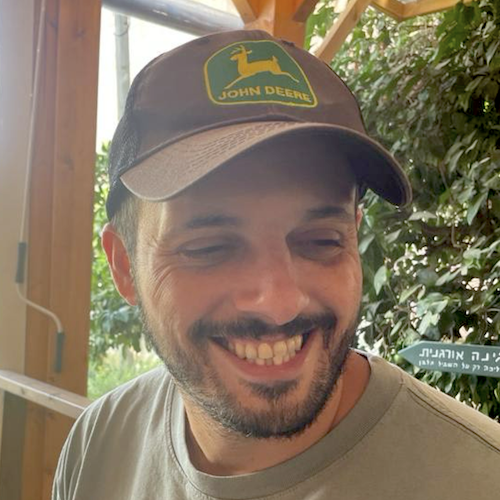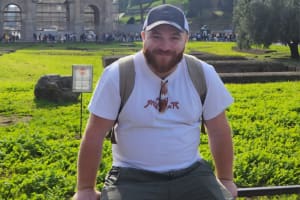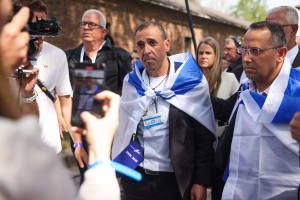Breaking the silence: New voices and shifting power in Lebanon

Once known as the "Paris of the Middle East," Lebanon stood as a beacon of cultural sophistication, religious coexistence, and intellectual freedom in the region. Its capital, Beirut, was more than just a city - it was a symbol of cosmopolitan life in the Arab world, where cafes buzzed with political discourse, universities fostered critical thinking, and a diverse population coexisted in relative harmony. Banking, tourism, and cultural exchange flourished, making Lebanon a bridge between East and West.
This vibrant past stands in stark contrast to recent decades, where external manipulation, primarily that of Iran and Syria, internal strife, and the suffocating grip of Hezbollah's influence have muted much of this open dialogue. However, since the outbreak of hostilities between Israel and Hezbollah in October 2023, a remarkable shift has occurred in Lebanon's public discourse. As Israel's military response has exposed Hezbollah's vulnerabilities and the high cost of its adventurism to Lebanese society, previously suppressed voices have begun to emerge.
What makes this change particularly significant is not just the content of the discussions, but the very fact that they're happening at all – voices that would have been silenced by fear of Hezbollah's reprisals mere months ago are now speaking openly about the organization's responsibility for Lebanon's deteriorating situation.
From Christian majority to Hezbollah's ascendancy
Hezbollah's dominance in Lebanon represents one of the most successful examples of a non-state actor transforming into a state-within-a-state. The organization's power structure was built on three pillars: its deep integration with the Shiite population, its military capabilities that often exceeded those of the Lebanese state, and its ability to manipulate Lebanon's sectarian political system.
Lebanon's political landscape has undergone a dramatic transformation since its independence. The country was originally established under a French mandate with a Christian majority and a power-sharing agreement that reflected this demographic reality. Christians, particularly Maronites, were the dominant political force, holding the presidency and key positions in government. However, demographic shifts, emigration, and civil war fundamentally altered this balance.
The Christian population, which once formed a majority in Lebanon, has significantly declined through waves of emigration during and after the civil war. While exact numbers are politically sensitive and disputed, estimates suggest the Christian population has dropped from around 60% in the 1940s to approximately 30-35% today. This exodus was particularly pronounced during the 1975-1990 civil war and the subsequent years of Syrian occupation.
Hezbollah's ascent was methodically executed through several strategies:
1. Social Integration: The organization embedded itself deeply within the Shiite community by providing essential services the state failed to deliver. This included healthcare, education, and social welfare programs, creating a dependency relationship that translated into political loyalty.
2. Military Dominance: By maintaining an armed force that grew more powerful than Lebanon's national army, Hezbollah could enforce its will through implicit or explicit threats of force. The group maintained this military capability under the pretext of "resistance" against Israel.
3. Political Manipulation: Taking advantage of Lebanon's confessional political system, Hezbollah built alliances with other parties, particularly Michel Aoun's Free Patriotic Movement, giving it effective veto power over government decisions and control over key state institutions.
Voices of change across communities
The recent shifting dynamics have encouraged diverse voices to emerge across Lebanon's religious and social spectrum. Leading this wave of fresh dialogue is Lebanese filmmaker Youssef El-Khoury, whose bold statements as a Christian critic of Hezbollah have captured attention across the region. El-Khoury has notably introduced the concept of "Pax Israeliana" to describe a potential new era for Lebanon. In his controversial statements, he referred to the Palestinian cause as "fake," arguing that Lebanon has been destroyed for "an entity that never existed." He has directly challenged Hezbollah's influence, criticizing its leader Hassan Nasrallah for what El-Khoury describes as polluting "the Lebanese mind, history, and heritage." His use of the term "Pax Israeliana," echoing historical concepts like Pax Romana or Pax Americana, represents a dramatic break from traditional Lebanese discourse about Israel.
The discourse extends beyond individual voices to encompass broader political movements. Samir Geagea, leader of the Christian Lebanese Forces party, has taken a strong stance against Hezbollah's unilateral actions, specifically condemning the group for opening a front with Israel to back Hamas, arguing that these actions have harmed Lebanon without making any impact on Israel's operations in Gaza.
Maronite Patriarch Bechara Rai has emerged as a powerful voice against forces seeking to destabilize Lebanon from within. As the spiritual leader of the Maronite Church, his denunciation of attempts to drag Lebanon into war carries significant weight across religious communities. His position as a lodestar for many Lebanese Christians has made his statements particularly influential in shaping public opinion.
Shifting perspectives across religious lines
The Christian community's evolving stance represents just one facet of a broader transformation in Lebanese society. Within the Sunni community, there's a growing questioning of the wisdom of supporting external causes at the expense of Lebanon's stability. This shift is particularly significant given the historically moderate stance of Sunnis during the Lebanese Civil War, where they refused to build militias or get involved militarily in the Lebanese conflict.
Even within the Shia community, traditionally Hezbollah's base of support, there are signs of growing discontent as economic hardships lead many to prioritize stability over regional conflicts. While this dissent remains relatively muted due to Hezbollah's strong influence in Shia areas, the increasing economic pressures have begun to strain even this traditionally solid support base.
The Lebanese diaspora, less constrained by local pressures and often viewing the situation through an international lens, has become increasingly vocal. Their perspectives, shaped by experiences in Western democracies and unencumbered by direct threats from local armed groups, often advocate for more dramatic changes in Lebanon's approach to regional relations and internal governance.
Current shifts in power dynamics
Recent events suggest Hezbollah's grip on power may be weakening:
1. Economic Crisis Impact: Lebanon's economic collapse has severely strained Hezbollah's ability to maintain its social services network, weakening its hold over its core constituency.
2. Military Challenges: Recent confrontations with Israel have exposed limitations in Hezbollah's military capabilities, diminishing its image of invincibility.
3. Political Realignment: Christian parties that previously aligned with Hezbollah, notably parts of the Free Patriotic Movement, are beginning to distance themselves from the organization.
The role of social media and new public square
The rise of social media platforms has created new spaces for Lebanese citizens to express previously suppressed views. On platforms like Reddit and Twitter, discussions among Lebanese users reveal a complex range of opinions about peace, stability, and Hezbollah's role in their country. Many express a desire for economic prosperity and regional stability, with some acknowledging that weakening Hezbollah could benefit Lebanon in the long run. These digital forums have become a modern version of Beirut's historic cafes, where ideas can flow more freely than in traditional public spaces.
Economic reality as a catalyst for change
Lebanon's severe economic crisis has become a powerful catalyst for changing attitudes. The country's financial collapse has forced many Lebanese to reevaluate long-held positions through a more practical lens. The prospect of economic cooperation with Israel, once taboo to even discuss, is now being examined more openly, particularly in business circles and among younger Lebanese professionals.
The banking sector, once the pride of Lebanon and a symbol of its role as a regional financial hub, has been decimated. This decline has led to increasing questions about the cost of isolation from potential regional trading partners. Many Lebanese now openly discuss how the country's enforced isolation from certain economies, particularly Israel's dynamic tech sector, has contributed to its economic stagnation.
The Palestinian factor
The Palestinian issue has been another crucial element in Lebanon's complex political equation. Lebanon hosts the highest percentage of Palestinians living in camps (55% or 200,000 people), with conditions in these camps remaining grim due to discriminatory official policies. Lebanese authorities have long considered Palestinians a threat to the sensitive balance of religious and ethnic communities in their country. This situation has contributed to the complex web of tensions that Hezbollah has exploited to maintain its influence.
Looking to the Future
As Lebanon stands at this crossroads, the question isn't just about its relationship with Israel or Hezbollah's role in society. It's about whether Lebanon can reclaim its heritage as the Middle East's forum for free thought and open dialogue – a place where different perspectives can coexist and complex issues can be discussed without fear of reprisal.
The emergence of these new voices, however tentative, offers hope that Lebanon might once again become a place where ideas flow freely and where different visions of the future can be debated openly. While the path forward remains uncertain, the very existence of these discussions suggests that the spirit of the "Paris of the Middle East" hasn't been entirely extinguished – it has merely been waiting for the right moment to reemerge.
The real test will be whether these emerging voices can translate into concrete political and social change in a country where armed militias still hold more power than state institutions. The challenges are formidable: entrenched interests backed by weapons and foreign support; deeply rooted regional power politics; and decades of sectarian divisions that have repeatedly torn the country apart. While new voices calling for change offer a glimmer of hope, Lebanon's history suggests that the path from voiced dissent to actual reform is fraught with danger. The country's traditional openness to dialogue, even if temporarily resurfacing, must contend with the harsh reality that words alone cannot match the power of guns, foreign interests, and deeply embedded sectarian structures that have repeatedly thwarted attempts at genuine reform.

Tolik is a Middle East analyst and media professional with extensive experience in covering regional geopolitical developments. His background spans analytical journalism, media production, and strategic communications, having contributed to major Israeli and international television networks and newspapers.














